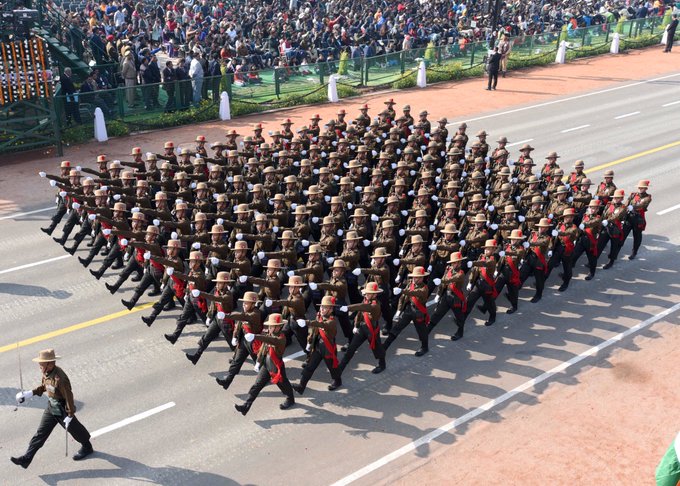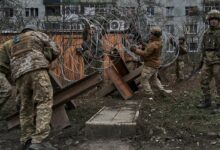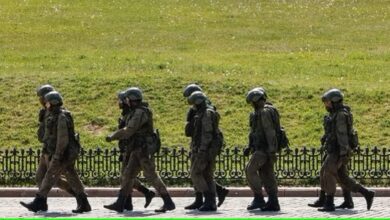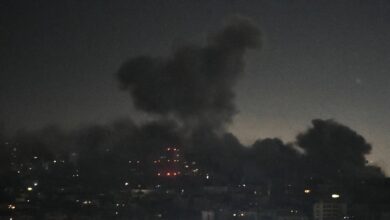Nepali Gurkhas Joining Wagner: Exploring The Allure Of Private Military Companies

- Pelton said that contractors were being paid between $30,000 and $6 million to help get people out of Ukraine.
- The global private military and security industry is expected to be worth $457 billion by 2030, according to a study from Aerospace & Defense News.
The Nepali Gurkhas, who are known as fierce warriors, are apparently joining the Wagner group, a private military company in Russia that rebelled against President Vladimir Putin two days ago. After Putin agreed to let Yevgeny Prigozhin, the leader of the Wagner mercenaries, escape treason charges and go live in Belarus, the mercenaries are now going back to their base.
People have thought that the Wagner Group is more effective than the Russian army, especially after Wagner soldiers helped Russia take control of Bakhmut, a small but important city in eastern Ukraine.
Why are Gurkhas joining Wagner?
There are rumors that young Gurkhas from Nepal have joined the Wagner Group. On May 16, the Russian government made it easy for people who have served in the military for a year to get Russian citizenship. Recent news from The Diplomat says that since then, hundreds of young Nepalese people have joined the Russian army as contract troops. Some of them used to be in the Nepal Army but have left.
“This is a troublesome situation. “The Nepal government can’t do anything about it because they went as individuals,” a former Nepal Army strategic analyst named Major General Binoj Basnyat told the EurAsian Times recently.
Nepali youth are very interested in becoming Russian citizens, but another reason is that they can no longer join the Indian Army. When the Indian government got rid of long-term jobs and replaced them with shorter contracts and no pensions last year, it strained ties between Nepal and India. After a few weeks, Nepal stopped the 200-year-old way of hiring people until there was more information.
Several movies have been shared on social media that show young Nepalese people going to Russia to get military training. One retired member of the Nepal Army told The Diplomat that he was working as a security guard in Dubai when better job opportunities in Russia drew him there. As a tourist, he went to Moscow, where he joined the Russian army at a recruitment center. Now, Russia doesn’t look for outsiders who can speak Russian when they hire them. During the war in Ukraine, Russia has started to give Wagner mercenaries some of the same benefits it gives to its own forces. Wagner is usually in charge of unusual army recruits, like prisoners and people from other countries. Its trainees come from several Baltic and Nordic countries.
There were rumors before that young Nepalese people were joining the Ukrainian army to fight against Russia. Since the British colonial army hired them, and since then India, France, and Singapore have also hired them, the Nepali Gurkhas are thought to be the best fighters.
The lure of Wagner
Wagner has become well-known because of the war in Ukraine. The media have said that it is better than the Russian army. Its recent hard-fought win in the Ukrainian town of Bakhmut has given it an air of bravery. Wagner is known for having a strict code of loyalty and unity, both to the group and to Russia. Wagner was in the news last year because he killed a deserter with a hatchet in a very cruel way.
Wagner is thought to be controlled indirectly by the Russian military and intelligence services, which give it arms and give the Russian military places to train. Wagner is good for Putin because it makes it possible to lie about Russian military operations in other countries and makes it easier to hide the deaths of Russians during operations in other countries. Wagner has worked in African and Arab countries with a lot of fighting. Wagner hires soldiers from the Russian army, from jails, and from other countries. When the average monthly income in Russia is well below $1,000, it gives its recruits up to $2,500. This is a lot of money for young Nepalis.
The rise of the private military companies
Wagner Group is the most well-known private military business right now, but it is not the only one. In fact, the East India Company also had its own troops two hundred years ago. It did, however, work for the British Crown. During the Cold War, sensitive missions were given to private defense companies by Western countries because they made it easy to lie about what they did.
During the American wars in Iraq and Afghanistan, the number of private defense companies and contractors grew quickly. Western governments and businesses hired them to keep people safe, protect convoys, handle operations, and save people.
After a big private military company, Blackwater, got in trouble for doing bad things in Iraq, they became well-known. One of the largest private defense companies was Blackwater, which later changed its name to Academi and merged with several other security companies to form Constellis Holdings. Erik Prince, who used to be a Navy SEAL, started it, and the US government gave it money.
In 2007, Blackwater guards shot and killed 17 people in Baghdad’s Nisour Square. The shooting was a turning point in the American occupation of Iraq. The New York Times said that it was one reason why Iraq didn’t agree to a deal that would have let US troops stay in the country after 2011.
Even before Nisour Square, Blackwater’s security guards had a bad reputation among Iraqis and American soldiers for being arrogant and careless. However, when they complained about things like running cars off the road, shooting wildly in the streets, and even killing civilians, neither the U.S. nor the Iraqi government usually did anything about it, according to the New York Times.
Time magazine said in 2021 that Erik Prince, the founder of Blackwater, wanted to build a huge private military company in Ukraine with the help of the government before the attack. Prince wanted to hire combat veterans from Ukraine to work for a private defense company. He also wanted a big piece of Ukraine’s military-industrial complex, which included plants that made engines for fighter jets and helicopters. Time magazine was the only one to get his full plan, which was dated June 2020 and included a “roadmap” for making a “vertically integrated aviation defense consortium” that could bring in $10 billion in income and investment.
“Prince’s reputation as a businessman was in line with how bold the idea was. Time magazine said, “For nearly 25 years, the former Navy SEAL has been a leader in the private military industry. He has raised armies in the Middle East and Africa, trained commandos at his base in North Carolina, and sent security forces all over the world for the State Department and the CIA.”
Prince started a security and transportation company in Hong Kong called Frontier Services Group (FSG). This company has worked with the Chinese government. It is said that FSG has worked for Chinese companies to provide protection in other countries for projects that are part of China’s huge Belt and Road Initiative.
Private military groups say they provide security for businesses, VIP protection, and rescue services, but they often work in the shadows and go on combat missions. Several international agreements have made it illegal for soldiers to fight in wars.
Government agencies often hire private military companies or firms to do jobs that are too dangerous or controversial for state soldiers. Small countries’ soldiers are also trained by them. They have been hired to protect Africa from hunters and sea pirates. NGOs have often hired them to work in dangerous places. Rich people hire them to go on rescue missions. Contractors and people who work for private military companies get paid a lot more than regular government troops because they take on more risk and can be kicked off the team if something goes wrong.
Robert Young Pelton, a Canadian-American author and expert on private defense companies, said last year that after Russia invaded Ukraine, there was “a frenzy in the market” for private contractors. In the middle of a terrible war in Ukraine, US and European private contractors said they were looking for more chances, such as helping with logistics or “extraction” missions. Pelton said that contractors were being paid between $30,000 and $6 million to help get people out of Ukraine. The bigger number is for groups of families who want to leave with all of their belongings.
The global private military and security industry is expected to be worth $457 billion by 2030, according to a study from Aerospace & Defense News. In 2020, the industry is expected to be worth $224 billion.







Facebook Comments